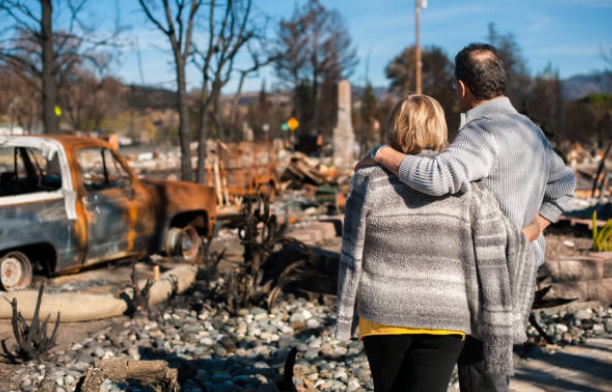Although we could say that we have a state of emergency worldwide, there are many situations in which the authorities can restrict free will in order to safeguard the population from a specific situation that represents a risk to citizens.
In our country, there are many states that decree this type of declaration due to situations such as snowstorms, earthquakes, hurricanes, among others. Although it can also be decreed at the national level by the president if the situation warrants it.
There are many doubts that arise when analyzing the effects of a state of emergency, if you have doubts, continue reading because we will surely answer some of the most common doubts related to this.
What Is A State Of Emergency?
A state of emergency is declared when the competent authority (President, Governor, or Mayor), considers that a disaster that could seriously affect the physical and health well-being of the people who live in a given location has occurred or is imminent.
The situation must be serious enough and suppose a great risk to the population, such as an earthquake or a storm, or any circumstance that puts people’s lives at risk.
Once the state of emergency is declared, in the case of the states, the Governor is authorized to request Federal assistance if she/he believes it’s required to attend to the damages and losses produced or even to prevent this from happening. Likewise, they are authorized to immediately have available resources to serve the population by rescuing, evacuating, and sheltering the victims of a natural disaster or providing basic products such as food.
Public Policies Declared In A State Of Emergency
When we hear about a state of emergency has been declared, we tend to be alarmed and think about all the catastrophes that occur in movies. However, although there are indeed more serious situations than others, we must not succumb to the fear that a risky situation involves and we should respect the guidelines issued by the competent authority to safeguard our lives and that of our loved ones.
As we have mentioned, there are many reasons for declaring a state of emergency, therefore its content or effect may vary depending on the situation and the severity of the risk. Nevertheless, there are certain common aspects, such as:
Restrictions
Depending on the risk situation, the competent authority can restrict certain activities from citizens. An example may be that non-essential travels are prohibited, or access to beaches is not allowed during the arrival of a hurricane.
Citizens’ movement limitations
Generally, the declaration of a state of emergency does not require citizens to carry out certain actions directly or restrict their daily activities, however, access to certain areas or free movement may be limited to specific areas. At all events, if the risk situation requires traffic to be restricted or totally prohibiting access, the authorities will inform citizens (through emergency management offices, press releases, alert systems, etc.) and take the necessary measures so the emergency is attended in a timely manner.
Validity and enforceable duration
As well as indicating what are the measures that the government will take to prevent or minimize damage, they will also inform citizens for how long it will be in force, or, the authority will terminate the state of emergency when it has ceased the situation of imminent risk.
Essential goods and services
Although throughout the declaration the authorities do not address the provision of goods and services directly, due to the possible restrictions and limitations that the risk situation demands, the commercialization of goods or services may be affected. However, everything will depend on the severity of the risk or the situation, and carefully review the content of the declaration or contact the local government for more detailed information.
➡ READ ALSO: Do they watch you during a pre-employment drug test?
Employment vs. the State of Emergency
Commonly, states of emergency do not address the labor or administrative policies of companies, so the employers must take care of the working hours, the compensation of their employees, and whether they should attend their jobs or not.
Depending on the seriousness of the situation and the restrictions of the state of emergency, your employer may require you to attend to work; however, if you are a non-essential worker, your employer should not require such a thing.
Now, in these cases, we usually ask ourselves if our employer can fire us if we refuse to work during a state of emergency, for instance, if there is a ban on traveling by car and your employer forces you to work but you fear for your life and decide to stay at home because you are a non-essential worker, your employer would not have good cause to fire you for that reason. However, let’s remember that in “at-will” states, employers can freely fire workers without explanation.
Consequently, to put it another way, if your employer forces you to attend your workplace during a state of emergency you should evaluate the risks and then decide if attend. On the other hand, you need to know that your employer may decide to terminate you if you refuse to work. You can verify the “at-will” states here.

